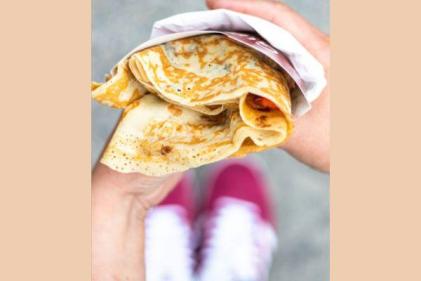 Quenching your thirst during pregnancy can be complicated. What's allowed, and what's potentially harmful to your baby? And can't a girl have a little fun? Below you'll find the scoop on what's okay to drink, and what you need to steer clear of — plus some fun bump-friendly cocktail recipes.
Quenching your thirst during pregnancy can be complicated. What's allowed, and what's potentially harmful to your baby? And can't a girl have a little fun? Below you'll find the scoop on what's okay to drink, and what you need to steer clear of — plus some fun bump-friendly cocktail recipes.
Alcohol
The first beverage you should give up as soon as you discover you are pregnant (or when you are trying to conceive) is alcohol. There are high risks associated with binge drinking and daily alcohol consumption. The amount, frequency and the stage of pregnancy all influence whether a foetus will be harmed. Damage caused by alcohol consumption is not just limited to the first trimester. It can also occur in later stages, when the foetus is growing and brain is developing. Alcohol crosses the placenta, and reaches the developing foetus via your bloodstream. There is no doubt that heavy drinking, especially binge drinking (consuming five or more units of alcohol on one occasion), during pregnancy is not safe. Binge or heavy alcohol consumption dramatically increases the risk of a baby with FAS. High levels of alcohol consumption have been associated with an increased risk of miscarriage, premature birth and stillbirth.
Coffee
It is generally recommended that, whilst you don’t have to give caffeine up completely, that you reduce the amount you have to no more than 200mg per day. A cup of instant coffee has approximately 100mg of caffeine which would mean you can only have two cups a day. An easy alternative to your coffee or tea habit is to switch to de-caf. The first mug or two is quite different but you will get the hang of the new taste – promise. Drinking too much caffeine increases the risk of miscarriage and your baby having a low birth weight. Low birth weight can lead your baby to develop other problems when they are born. Caffeine is also a diuretic, which means it pulls fluids and calcium from both you and your baby and it will keep you running to the toilet. Caffeine has no nutritional value and it can affect your sleep, mood and absorption of iron.
Caffeinated sodas
It is safe, in moderate amounts. Fizzy drinks provide empty calories and you want to eat as healthily as possible while pregnant. Fizzy drinks with caffeine, such as coke, should be limited, if not eliminated as you are only allowed a max of 200mg of caffeine a day. The typical caffeinated fizzy drink contains 35 – 55 mg of caffeine so it is a good idea to be careful about how much of these you drink.
Diet shakes
Diet shakes are safe to drink, but not if you are using them to actually diet. You can have one occasionally if you as a snack or meal, but do not rely on them every day. While pregnant, you want to eat a variety of food from each food group so your body is getting everything it needs for both you and your baby.
Diet sodas
These are safe as long as you don’t go over your limit of 200mg of caffeine per day. You should drink these in moderation while pregnant and make sure to drink lots of water and milk along with these drinks.
Unpasteurized juices
Unpasteurized juices are not safe because you immune system is suppressed during pregnancy. You should drink only pasteurized juice, unless the fruit has been freshly washed and squeezed immediately before drinking it. Drinking unpasteurized juice has been associated with diseases such as E. coli and Salmonella.
Eggnog
While this is not traditionally served in Ireland, you may come across it at Christmas time. While some Eggnog can be safe, it’s best to avoid as it is often made from raw eggs. Raw eggs are a major no-no while pregnant as they can cause food poisoning. You can contract salmonella which will cause high fever, vomiting and diarrhea. This can lead to preterm labour or miscarriage. Eggnog can also often have alcohol in it which means it is definitely a drink to avoid.
If you're already very familiar with what drinks to avoid during pregnancy, why not check what foods to avoid in pregnancy?






